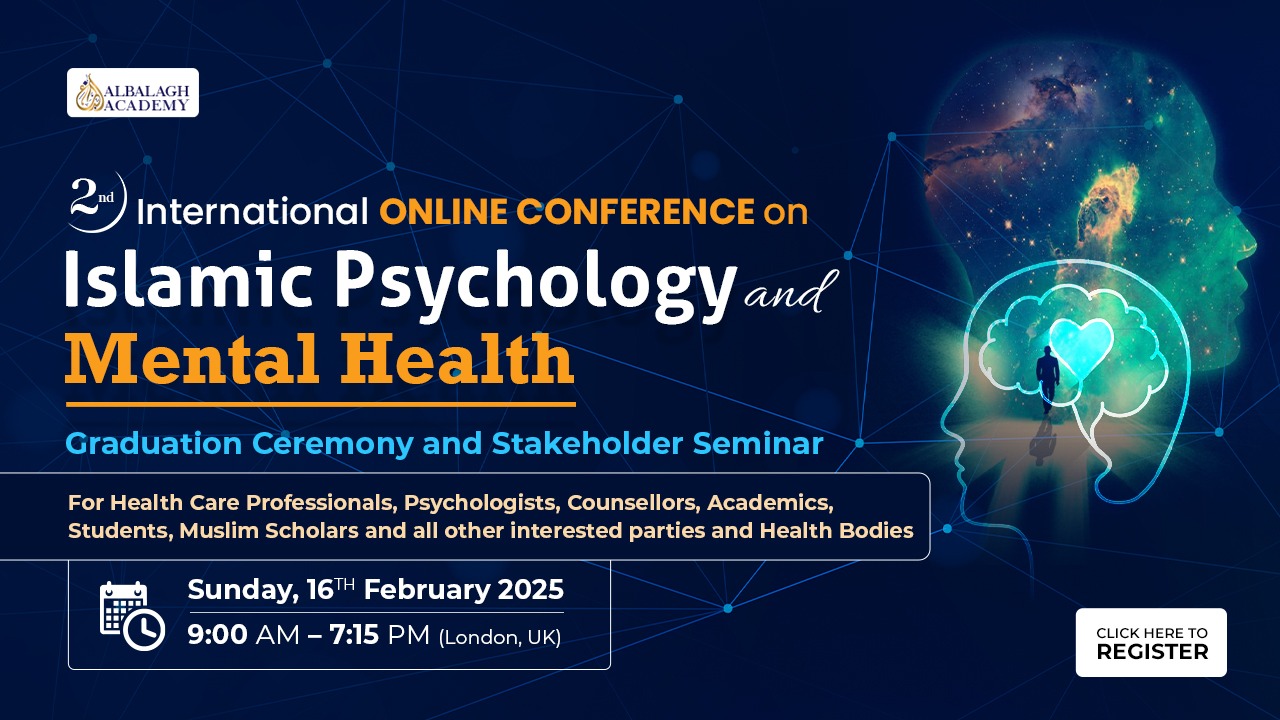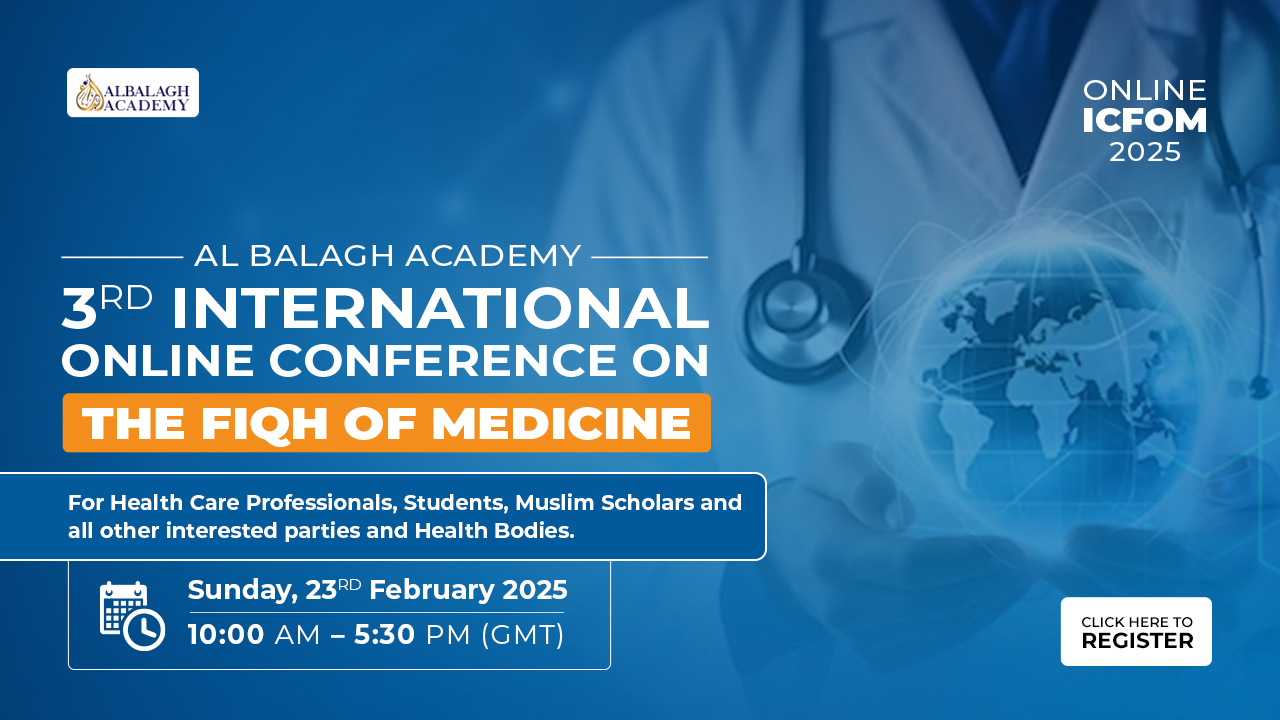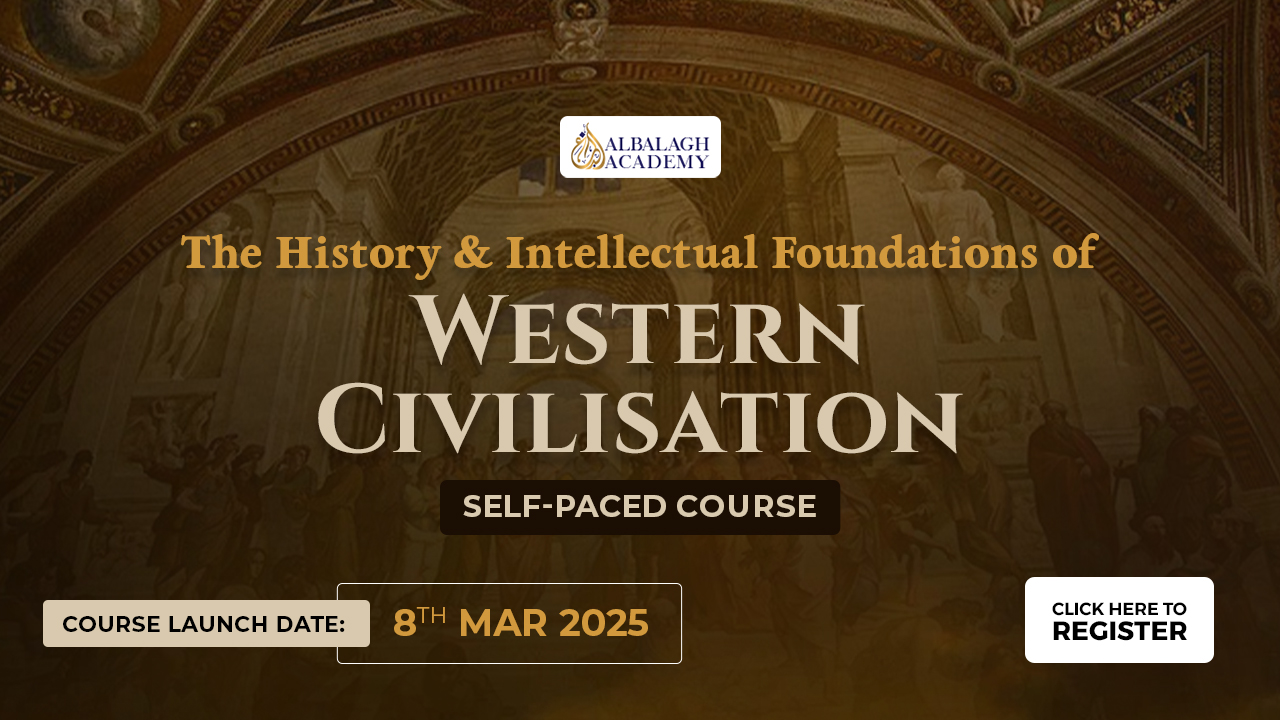Al Balāgh Online ʿĀlimiyyah Programme
(Accepting applications for February 2025 intake)
▼
Batch 1
(Part time – Sisters)
Deadline: 16th February 2025
Start Date: 17th February 2025
Days: Mon, Wedn & Thurs (Weekday)
Time:
10 AM – 1 PM (London)
7 PM – 10 PM (Sydney)
11 AM – 2 PM (Berlin)
(We will follow London time after the timezone shift)
Batch 2
(Part time – Sisters)
Deadline: 16th February 2025
Start Date: 17th February 2025
Days: Mon, Wedn & Thurs (Weekday)
Time:
9 AM – 12 PM (New York)
2 PM – 5 PM (London)
8 AM – 11 AM (Chicago/Texas)
(We will follow London time after the timezone shift)
Batch 3
(Part time – Brothers)
Deadline: 14th February 2025
Start Date: 15th February 2025
Days: Sat and Sun (Weekend)
Time:
2 PM – 9 PM (London)
9 AM – 4 PM (New York)
8 AM – 3 PM (Chicago/Texas)
(We will follow London time after the timezone shift)
Batch 3
(Part time – Sisters )
Deadline: 14th February 2025
Start Date: 15th February 2025
Days: Sat and Sun (Weekend)
Time:
2 PM – 9 PM (London)
9 AM – 4 PM (New York)
8 AM – 3 PM (Chicago/Texas)
(We will follow London time after the timezone shift)
Batch 4
(Full time – Sisters)
Deadline: 16th February 2025
Start Date: 17th February 2025
Days: Mon to Fri (Weekday)
Time:
9 AM – 2 PM (New York)
2 PM – 7 PM (London)
8 AM – 1 PM (Chicago/Texas)
(We will follow London time after the timezone shift)
About The Programme
The Al Balāgh Online Alimiyyah Programme is open to both men and women, making it accessible to College/University Students, Housewives, Working Professionals, and Academics. Anyone aged 16 and above, with a passion for exploring traditional Islamic sciences and addressing contemporary challenges while seeking to follow in the footsteps of the Prophet (PBUH), is welcome to join our community of knowledge seekers.
Our curriculum follows the esteemed Dars-e-Nizāmi syllabus and comprises four levels, covering 15 essential traditional Islamic sciences at an advanced level. We aim to foster a deep understanding of the dynamic nature of Islamic sciences, including their theological and jurisprudential roots, in handling contemporary issues related to modern sciences.
The programme is unique in the sense that it will incorporate relevant contemporary Islamic literature coupled with relevant contemporary academic social, historical philosophical and scientific studies. The course will be delivered using a personal developmental, unique skills-focussed approach which will be guided through one-to-one mentorship.
This is an advanced specialist programme that will train academics,professionals and passionate learners to achieve an in-depth grasp and understanding of the dynamic nature of the Islamic sciences, with their associated theological and jurisprudential roots, in handling issues related to modern sciences. The course will have an initial Ḥanafī school focus but will require scholars to be competent enough to be able to provide generic opinions from all sunnī schools of thought in the more advanced years. This is an excellent opportunity for interested individuals to be important drivers and enablers in the synergy of the Islamic tradition with modern sciences. Graduates will have an excellent opportunity to gain significant advantage in their future prospects having graduated with shahādah (certification) and ijāza (authorization) in a number of Islamic disciplines and classical texts from qualified traditional and renowned Muslim scholars and academics. They will be part of the international Muslim network of ʿUlama working in the domain of merging Islamic tradition with modern sciences.
Testimonials
AT A GLANCE
Completely online
Flexible
8+ Weekly Hours

Mobile App
10+ Learning Streams
Start your application
Next intake starts on 15th February 2025
Course Fee (Part-Time):
Course Fee (Full-time):
Pay in Full: £1440 £1200 Per Year
Pay in 12 Installments: From £120.00 Per Month
Apply Now
(scholarship available for those students who can’t afford the fee)

Interested in Al Balagh Online Alimiyyah Programme?

Oops! We could not locate your form.
Online Alimiyyah Syllabus
Part-Time | 4 Levels | 10+ Learning Streams | Flexible Duration
ʿĀLIMIYYAH FOUNDATION
الشهادة الثانوية العامة في العلوم الاسلامية واللغة العربية
Level 1 | 50+ Courses |
4 Semesters | 2 Years
Click to View the Syllabus >>
ʿALMIYYAH INTERMEDIATE
الشهادة الثانوية الخاصة في العلوم الاسلامية واللغة العربية
Level 2 | 50+ Courses |
4 Semesters | 2 Years
Click to View the Syllabus >>
ʿĀLIMIYYAH ADVANCED
الشهادة الثانوية الخاصة في العلوم الاسلاميةو واللغة العربية
Level 3 | 50+ Courses |
4 Semesters | 2 Years
Click to View the Syllabus >>
ʿĀLIMIYYAH FINAL (Daurah Hadith)
الشهادة العالمية والإجازة العالية في العلوم الإسلامية
Level 4 | 10+ Courses |
4 Semesters | 2 Years
Click to View the Syllabus >>
ʿĀLIMIYYAH FOUNDATION
الشهادة الثانوية العامة في العلوم الاسلامية واللغة العربية
Level 1 | 4 Semesters | 2 Years
Click to Expand Syllabus >>
ʿĀLIMIYYAH FOUNDATION SYLLABUS
- Islamic Theology & ‘Aqīdah Studies
- Qur’ānic Studies
- Ḥadīth Studies
- Fiqh & Contemporary Fiqh Studies
- Arabic Language
- Tazkiyah Studies
- Sīrah & Islamic History
- Tajwīd & Hifz
[showmodule id=”816711″]
[showmodule id=”816720″]
[showmodule id=”816734″]
[showmodule id=”816741″]
[showmodule id=”816791″]
[showmodule id=”816825″]
[showmodule id=”816839″]
[showmodule id=”816847″]
ʿALMIYYAH INTERMEDIATE
الشهادة الثانوية الخاصة في العلوم الاسلامية اللغة العربية
Level 2 | 4 Semesters | 2 Years
Click to Expand Syllabus >>
ʿALMIYYAH INTERMEDIATE SYLLABUS
- Islamic Theology & ‘Aqīdah Studies
- Qur’ānic Studies
- Ḥadīth Studies
- Fiqh & Contemporary Fiqh Studies
- Arabic Language
- Tazkiyah Studies
- Sīrah & Islamic History
- Mantiq and Western Approaches
- Tajwīd & Hifz
[showmodule id=”816891″]
[showmodule id=”816901″]
[showmodule id=”817022″]
[showmodule id=”817027″]
[showmodule id=”817035″]
[showmodule id=”817046″]
[showmodule id=”817051″]
[showmodule id=”817078″]
[showmodule id=”817070″]
ʿĀLIMIYYAH ADVANCED
الشهادة الثانوية الخاصة في العلوم الاسلاميةو اللغة العربية
Level 3 |4 Semesters | 2 Years
Click to Expand Syllabus >>
ʿALMIYYAH ADVANCED SYLLABUS
- Islamic Theology & ‘Aqīdah Studies
- Qur’ānic Studies
- Ḥadīth Studies
- Fiqh & Contemporary Fiqh Studies
- Arabic Language
- Tazkiyah Studies
- Sīrah & Islamic History
- Mantiq and Western Approaches
- Tajwīd & Hifz
[showmodule id=”816957″]
[showmodule id=”816965″]
[showmodule id=”816971″]
[showmodule id=”816977″]
[showmodule id=”816986″]
[showmodule id=”816993″]
[showmodule id=”817002″]
[showmodule id=”817011″]
[showmodule id=”817015″]
ʿĀLIMIYYAH FINAL (Daurah Hadith)
الشهادة العالمية والإجازة العالية في العلوم الإسلامية
Level 4 | 4 Semesters | 2 Years
Click to Expand Syllabus >>
Eligibility criteria:
- 16+ years of age.
- Fluent in the English language.
The aspiring students should be either:
- Housewives
- College or University Students
- Having a bachelor’s degree or master’s degree
- Academics (Currently in the professional academic role or associated with any academic institute)
- Working Professionals (those with a professional skill-based career such as Medical Professionals, Accountants, IT Professionals, Lawyers, Journalists etc.)
- Those who have experience in any Islamic daʿwah or social welfare organization
Note: Students are expected to know the Arabic alphabet & be able to read the Qur’an fluently.
The programme is exclusively tailored to provide students with an opportunity to develop advanced expertise in Islamic Sciences in a short period.
Currently, we are accepting applications for Level 1, but If you are interested in Level 2 or Level 3 and have prior qualification in the field based on pursuing Alimiyyah or Arabic programme elsewhere, then kindly include information of your prior study subjects history in detail and attach the transcripts in the application. After receiving your application, our admission team will make a decision based on your merits and also arrange assessment meeting after your enrollment.
Note: Timings given on website are of beginner level classes. Advanced students classes timings can be different as we have limited students from different timezones, hence you are advised to expect flexible schedule for advanced classes. You can also add details of all your available timings in the application form so that Admission team can update you if we are planning to offer advanced classes in your suitable time frame.
Advanced classes are suggested based on your proficiency assessment meeting with Ustad/Ustadah
For any queries contact our Admission team on +447946835804
Application Process
For direct entry, apply and attach all supporting documents as outlined in the admission requirements. The admissions team will assess your application and advise on next steps.
Our distinctive approach relates to our four-level structure, making it more holistic and flexible. The Programme has been divided into four levels:
Alimiyyah Foundation
Alimiyyah Intermediate
Alimiyyah Advanced
Daurah Hadith
In the Part time programme, there will be 4 semesters in every level.
In the Full time programme, there will be two-three semesters in every level.
Year I of this programme will broadly cover the foundational Arabic language, Qur’anic studies, Hadith Studies, Islamic Fiqh, Islamic History Seerah, Tazkiya, Aqeedah, Islamic Theology, Philosophy and other essential Islamic subjects.
The whole course is taken online and offers a flexible way to study while maintaining work and personal commitments. It consists of the following key approaches:
- Classical Texts: Students will study the classical texts from beginner level to advanced levels to gain familiarity with classical books on multiple disciplines written by renowned Shariah scholars. Students will explore over 100+ classical textbooks during the programme.
- Presentation Based Lectures: There will be many courses every semester that will be delivered through presentations to support easier learning and to assure that students who learn visually can benefit.
- Live Online Sessions: There will be regular weekly live interactive online classes to discuss topics raised with case studies where appropriate. You are encouraged to discuss cases during the live interactive sessions, ask questions and raise important points for feedback. This interactive session will be a key component of the learning process and the more you can engage with your lecturer, the more productive and enjoyable your learning will be.
- Video Recordings: The live session will be recorded, and you can access these recordings on the website. This will make it easy for students to revise and make notes later.
- Online Course Material: In every course, your lecturer will suggest further reading material that you can review, print, read, and engage with, prior to the live session. This course material may be in the form of articles, case scenarios with questions, or recorded videos.
- Online Learning Activities and Online Assessments: In every course, there will be a variety of online learning activities, practical assignments, Module Assessments (graded or ungraded) to help you revise, reflect and gain a pragmatic approach and understanding to the subject.
- Discussion with Fellow Learners: Discussion with fellow learners is another important component of your development. In our course-specific WhatsApp groups, and our regular online Muzakarah sessions, students can review their course material and class with other learners, and share ideas with fellow students.
- Students Seminars: Regular participation in seminars will develop thinking, presentation and public speaking skills. (Students will learn to produce presentations and present via seminars, whilst presenting their arguments. This will be an excellent opportunity to receive constructive feedback.
We follow modules system hence classes have some flexibility, allowing students to drop few classes in semester based on their circumstances after discussing with their mentors. However this may increase your duration of completing Alimiyyah programme. In terms of time commitment.
Core Courses & Elective Courses: In every semester, there will be Core and Elective Courses. Your mentor will guide you on your course selection after a detailed assessment of your profile. Students can also apply for exemption from core courses if they can demonstrate that they have completed these courses/subjects before, or have the required level of knowledge.
Flexible Medium Of Learning: Online education has enabled pursuing almost every course and programme easy. Students can attend the live classes from the comfort of their home and complete their sacred journey of Islamic learning without compromising on other commitments.
Attendance Requirement: Attendance (a minimum of 50% attendance) is mandatory in the live online sessions of all core courses.
24/7 Access to Video Recordings: Video recordings for every live session will be available within 48 hours on students’ course dashboard for revision and convenience.
Mobile App: Students can get access to the course content on the go, using Albalagh mobile app and complete the coursework from anywhere and at any time.
Exemption: Students with advanced knowledge or experience in the related subjects can apply for exemption for certain courses to select the next level courses in that subject.
We understand that our students may require guidance on managing personal and professional commitments and development; hence Al Balagh designed a personalised mentorship model for passionate students like you to ensure that you receive continuous support. After successful enrollment, our academic support team will assess your profile and will draft a personalised learning plan based on it. Your mentor will guide and advise you on all course-related queries.
Upon successful completion of the first level, students will be awarded:
الشهادة الثانوية العامة في العلوم الإسلامية واللغة العربية
Upon successful completion of the second level, students will be awarded:
الشهادة الثانوية الخاصة في العلوم الإسلامية واللغة العربية
Upon successful completion of the third level, students will be awarded:
الشهادة العالية في العلوم الإسلامية واللغة العربية
Upon successful completion of the final level, students will be awarded:
الشهادة العالمية و الإجازة العالية في العلوم الإسلامية
Programme Overview
The unique Online Al Balāgh ʿĀlimiyyah Programme has been developed to address the important need to merge knowledge of the traditional Islamic sciences, which offers a centuries-old rich intellectual tradition, with current modern day sciences. Universities can offer valuable diverse academic approaches to some of these disciplines about Islam, but they cannot replace an essential centuries-old tradition where knowledge is parted, coupled with spiritual and personal development. This spiritual development is one that transcends the study of books and seeks to connect with the Creator to produce an Islamic epistemological approach which is quite different to the approach found in western institutes of learning. To be part of this spiritual chain of knowledge, one that extends from one’s teachers all the way to our noble Prophet (PBUH) is something that only a select few have the opportunity to experience. A humbling experience through a process requiring them to sit at the feet of traditional scholars of knowledge, gaining the wisdom of classical texts through an approach that has been passed down successive generations.
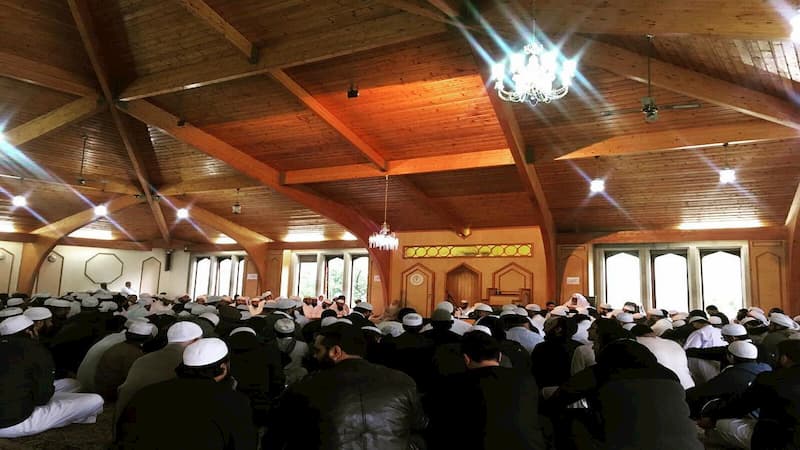

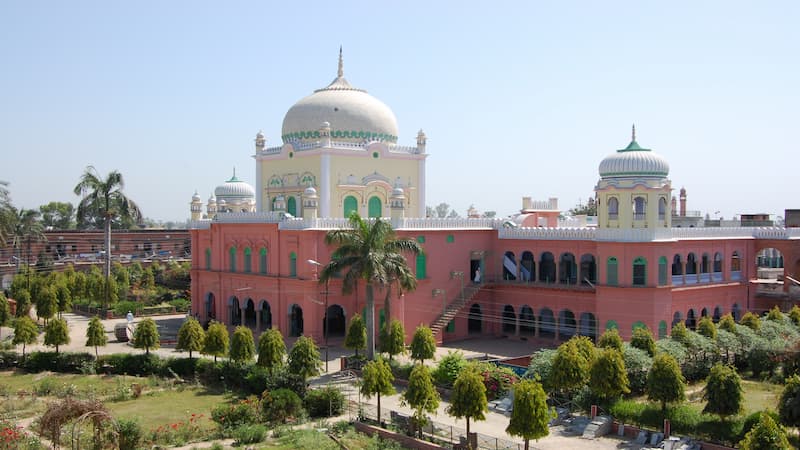
Explore The Wealth of Traditional Islamic Sciences
The Islamic traditional sciences have always been growing disciplines in response to diverse sociopolitical, philosophical and scientific challenges. A deeper analysis of Islamic normative positions related to a diverse range of important modern issues like logic, metaphysics, artificial intelligence, evolution, Islam and politics, genetics, Islamic psychology and societal ethics in a rapidly changing world, is proving quite challenging and crossing the lines of enquiry which question concepts we have never explored before or ever thought possible. There have been many attempts by Muslim scholars to address many areas of these challenges and their application to new cases. However, these Islamic disciplines have had to grow both horizontally and vertically to the degree that our current application of the wealth of our Islamic tradition to new and challenging issues is unfortunately still in its prime stages. There are immense works of classical Muslim scholars which require intense study with the prospect of it benefiting future generations. Some of these works are in manuscript form and others remain unread except by a few.

Addressing The Contemporary Issues
The horizontal growth is one which requires us to go back to the sources of our classical theology, substantive law, jurisprudence and ethics and tease out the nuances, and essential shariʿ principles that provide the guidance and framework to allow Islamic responses to technical questions. This requires Muslim scholars to have expertise in broader areas of theology, ʿilm al-kalām, tafsīr, ḥadīth, fiqh, language and rhetoric and tārīkh. The vertical growth is where these disciplines have now diversified beyond just classical text, and into many other specialties making it intersect with sciences such as philosophy, epistemology, metaphysics, anthropology, politics and other areas of humanities and social sciences. To meet these challenges requires preparation of Muslim scholars who have expert academic background knowledge of these sciences and the skillset to work closely with others embracing both good leadership qualities and aptitude to deliver the Islamic response that is both appropriate and informed through a multidisciplinary approach.


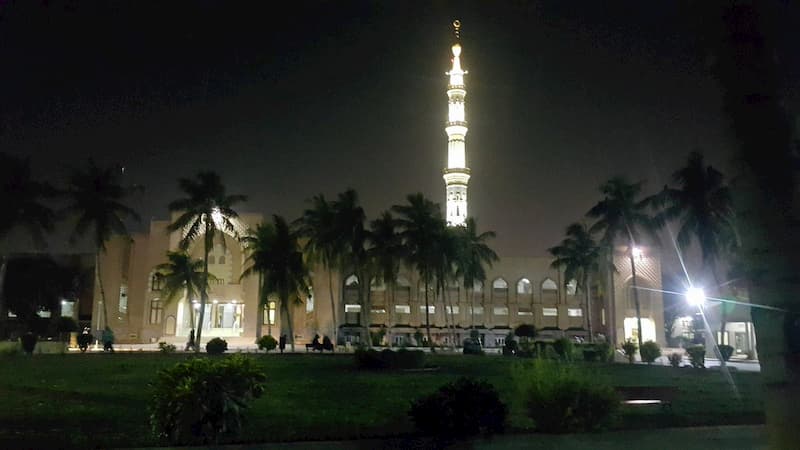
Become One of the Heirs of the Prophet (PBUH) Under the Guidance of Traditional Scholars
The most important aspect of the whole programme will ensure that the beneficial traditional element of madrasa learning is maintained as much as possible. This is to be achieved by ensuring that all our main scholars have been trained and have gone through robust teaching under the tutelage of their teachers through a successive chain of traditional learning that extends to the Prophet (PBUH). The approach unique to our madāris requires students to form an important relationship with their scholars and teachers which is both academic and essential for spiritual and personal development. This traditional approach will be woven throughout the syllabus content and delivery style so that students have a virtual madrasa experience. This is an exciting opportunity for students to learn, develop and connect to a line of traditional ʿulama who have a chain of learning all the way to our beloved Prophet (PBUH). After successful completion of this programme students will receive formal ijāza (authorization) and ʿAlimiyyah sanad enabling them to be included amongst the heirs of the prophets. The goal is to produce Muslim scholars who can contribute to their areas of expertise confidently, to bring about a meaningful impact and to respond to contemporary challenges.

Programme Aims & Objectives
The Program aims to achieve several key objectives:
– Develop profound understanding of classical Islamic literature.
– Explore chapters from diverse disciplines within classical Islamic theology, fiqh, uṣūl al-fiqh, tafsīr, ḥadīth, and kalām literature.
– Emphasize scrutiny of classical Islamic themes, particularly in the Ḥanafi Sunni schools of jurisprudence.
– Compare and contrast concepts relevant to contemporary contexts.
2. Specialized Knowledge in Contemporary Sciences and Islamic Literature:
– Foster advanced understanding of modern sciences and contemporary fields.
– Apply an academic approach to Islamic ethics and contemporary Islamic literature.
– Critically analyze various facets of contemporary tafsir, kalam, fiqh, and uṣūl al-fiqh literature.
– Contextualize studies within anthropological, sociological, and philosophical paradigms influencing modern Islamic practice.
3. Research, Analytical Skills, and Application of Islamic Tradition:
– Develop advanced research skills and critical analysis abilities.
– Attain high standards in contemporary academic literature writing and advanced delivery.
– Engage in research, learning, and exploration of concepts, theories, and principles in Islamic sciences.
– Understand the profound impact of Islamic tradition on both conventional and contemporary issues.
4. Personal, Professional, Spiritual, and Academic Skills Development:
– Cultivate essential skills for Muslim scholars.
– Participate in skills-based courses to identify and address strengths and weaknesses.
– Emphasize enhancing spiritual self-reflection, emotional literacy, effective communication, and presentation skills.
5. Contribution to Future Leadership in the Islamic Tradition:
– Nurture a new generation of Muslim scholars proficient in various Islamic disciplines.
– Equip scholars to address post-modern world issues through a multidisciplinary approach.
– Guide, identify, analyze, and resolve challenges in theology, philosophy, and anthropology.
– Contribute to the revival of the spirit of Islam in academic literature, committees, and allied industries.
6. Platform for Networking, Career Guidance, and Internship:
– Provide opportunities to connect with internationally recognized Muslim scholars and subject experts.
– Offer professional and spiritual guidance.
– Aim to create a new generation of ‘ulama’ capable of leading the Ummah and making a global impact.
– Facilitate networking and internship opportunities to further students’ practical experiences.
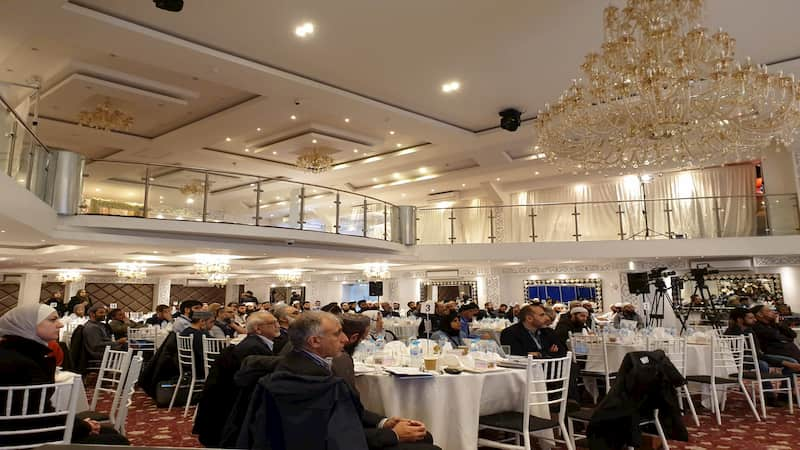
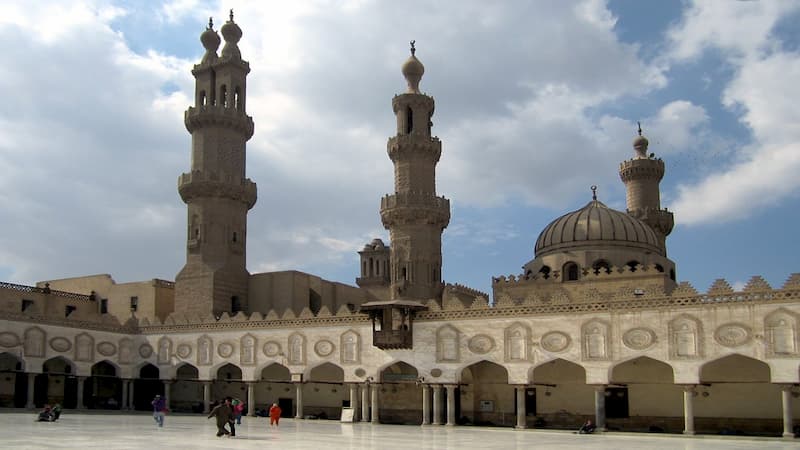
Testimonials
[showmodule id=”808086″]
